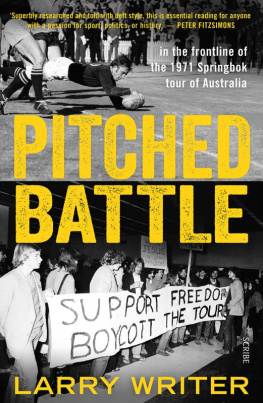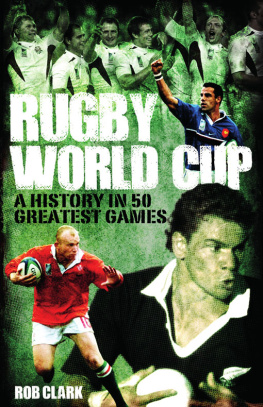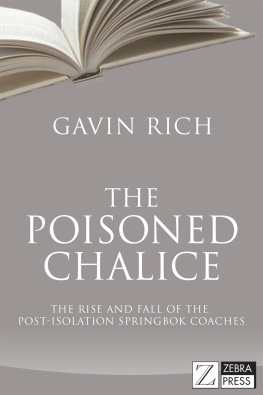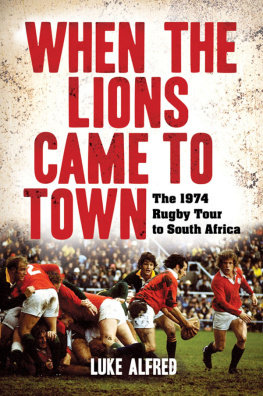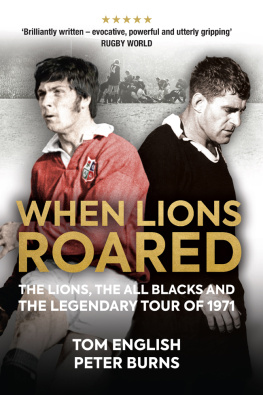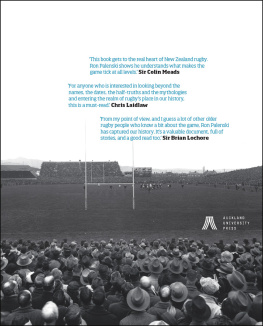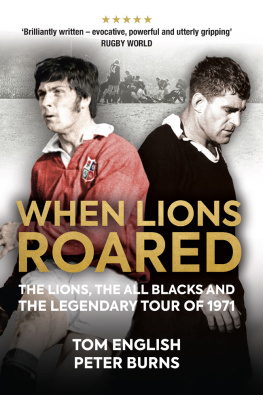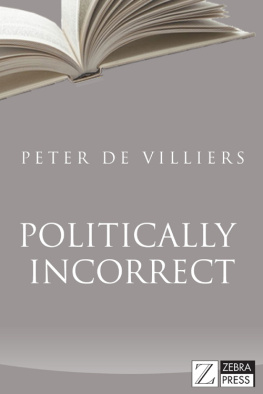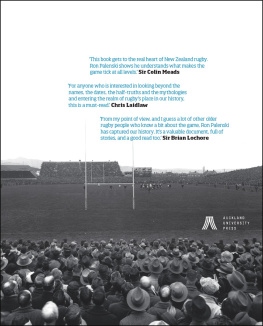Larry Writer - Pitched Battle: In the Frontline of the 1971 Springbok Tour of Australia (Rugby)
Here you can read online Larry Writer - Pitched Battle: In the Frontline of the 1971 Springbok Tour of Australia (Rugby) full text of the book (entire story) in english for free. Download pdf and epub, get meaning, cover and reviews about this ebook. year: 2016, publisher: Scribe Publications Pty Ltd, genre: Politics. Description of the work, (preface) as well as reviews are available. Best literature library LitArk.com created for fans of good reading and offers a wide selection of genres:
Romance novel
Science fiction
Adventure
Detective
Science
History
Home and family
Prose
Art
Politics
Computer
Non-fiction
Religion
Business
Children
Humor
Choose a favorite category and find really read worthwhile books. Enjoy immersion in the world of imagination, feel the emotions of the characters or learn something new for yourself, make an fascinating discovery.
- Book:Pitched Battle: In the Frontline of the 1971 Springbok Tour of Australia (Rugby)
- Author:
- Publisher:Scribe Publications Pty Ltd
- Genre:
- Year:2016
- Rating:3 / 5
- Favourites:Add to favourites
- Your mark:
- 60
- 1
- 2
- 3
- 4
- 5
Pitched Battle: In the Frontline of the 1971 Springbok Tour of Australia (Rugby): summary, description and annotation
We offer to read an annotation, description, summary or preface (depends on what the author of the book "Pitched Battle: In the Frontline of the 1971 Springbok Tour of Australia (Rugby)" wrote himself). If you haven't found the necessary information about the book — write in the comments, we will try to find it.
Larry Writer: author's other books
Who wrote Pitched Battle: In the Frontline of the 1971 Springbok Tour of Australia (Rugby)? Find out the surname, the name of the author of the book and a list of all author's works by series.
Pitched Battle: In the Frontline of the 1971 Springbok Tour of Australia (Rugby) — read online for free the complete book (whole text) full work
Below is the text of the book, divided by pages. System saving the place of the last page read, allows you to conveniently read the book "Pitched Battle: In the Frontline of the 1971 Springbok Tour of Australia (Rugby)" online for free, without having to search again every time where you left off. Put a bookmark, and you can go to the page where you finished reading at any time.
Font size:
Interval:
Bookmark:

PITCHED BATTLE
Larry Writer is a Sydney-based author whose books include Dangerous Games: Australia at the 1936 Nazi Olympics ; Razor (adapted into the hit TV series Underbelly: Razor ); Never Before, Never Again ; Pleasure and Pain (the official biography of Chrissy Amphlett); and Bumper: the life and times of Frank Bumper Farrell .
For their courage and compassion, this book is dedicated to
Anthony Abrahams
Jim Boyce
Meredith Burgmann
Paul Darveniza
Terry Forman
Barry McDonald
John Myrtle
James Roxburgh
Bruce Taafe
Scribe Publications
1820 Edward St, Brunswick, Victoria 3056, Australia
2 John Street, Clerkenwell, London, WC1N 2ES, United Kingdom
First published by Scribe 2016
Copyright Larry Writer 2016
All rights reserved. Without limiting the rights under copyright reserved above, no part of this publication may be reproduced, stored in or introduced into a retrieval system, or transmitted, in any form or by any means (electronic, mechanical, photocopying, recording or otherwise) without the prior written permission of the publishers of this book.
9781925321616 (paperback)
9781925307658 (e-book)
A CiP record for this title is available from the National Library of Australia.
scribepublications.com.au
scribepublications.co.uk
CONTENTS
Prologue:
PART ONE:
CONSCIENCE RISING
PART TWO:
INTO THE FRAY
Epilogue:
PROLOGUE
WHAT WAS LOST
South Africas National (or Nationalist) Party, a deeply conservative regime dominated by farmers of Dutch heritage and members of the Calvinist religious order, took power in 1948 after winning an election in which only whites could vote. It immediately passed laws to safeguard white supremacy: by segregation and denial of human rights to blacks and coloureds; by keeping for themselves the vast and bountiful land they believed had been bequeathed to them by God. The laws, which brutally and tragically oppressed the majority non-white population, were the cornerstones of the reviled policy known as apartheid. Literally separateness.
South Africas population was around 12 million then, only 2.4 million of whom were white. Land Acts reserved 77 per cent of South Africa for these whites. The remaining 23 per cent of land was divided into ten homelands, or reserves, where, the government decreed, those who had been classified by the government as black Africans (or Bantu, comprising 70 per cent of the population), coloureds (those of mixed race, 8 per cent), and Asiatics (chiefly Indians and Pakistanis, 2 per cent) had to live. To the ruling National Party, splitting non-whites into disparate, unconnected groups and denying them the vote ensured that its supremacy was unassailable.
Under the Group Areas Act, entire non-white communities (designated undesirables) could be uprooted from their suburb, where families might have lived for hundreds of years, and relocated in slum-shanty townships on the fringes of cities or in squalid transit camps in the deserts or homelands, where disease, starvation, poverty, and violence festered. The inhabitants of these hell-holes invariably had to travel further to their workplaces and pay higher transport costs for the privilege of doing so. Once the government had evicted and relocated non-whites, it sold their farms and city homes to whites at scandalously low prices. When Cape Towns coloured District Six suburb was subsumed by whites in 1966, 5,700 families were evicted. In all, during apartheids sorry time, nearly four million blacks, coloureds, and Asiatics were forced onto the street.
Equally despicable were the Pass Laws. Under these, every non-white over the age of 16 was required to carry at all times and produce on demand a 96-page reference book containing his or her identity card, tax receipts, employers signed verification, and other identifying documents. A police permit to move from one area to another was essential, and no non-white could remain for longer than 72 hours in any urban area where he or she was not born or did not work. By 1971, more than 2,000 arrests were being made every day under the Pass Laws. On 21 March 1960, in the black ghetto of Sharpeville, police fired on a crowd of around 6,000 non-whites who had converged on the local police station to protest against the Pass Laws. Some 69 died in the massacre and more than 190 were wounded. In the wake of this atrocity, Prime Minister Hendrik Verwoerd blamed saboteurs trained in Cuba and Red China for fomenting the trouble, and his government cracked down even harder on opponents.
Apart from being dispossessed of property and belongings, non-whites were tortured and executed. For opposing apartheid, they could be imprisoned without trial for periods of 90 days or 180 days under the Terrorism Act. That period could be extended at the governments whim. Non-whites were forbidden to vote or work in other than menial jobs. Marriage and sexual relationships between non-whites and whites were banned. Non-whites were not permitted to dine in the same restaurant or cafe as whites, drink hard liquor, or swim at a beach or in a pool used by whites. Public toilets, cemeteries, footpaths, and pedestrian bridges were segregated, along with public transport, hospitals, parks and playing fields, and schools. Non-whites could not operate a business or own land in white areas. The wages of non-whites were far lower than whites, and any black man who went on strike was jailed. Non-whites were denied social services and health services, and the government spent ten times more on a white childs education than a non-whites.
Purely for appearances sake, the National Party begrudgingly allowed the existence of opposition political parties, such as the African National Congress (ANC), its offshoot the Pan-African Congress (PAC), and the Liberal Party, but their members were terrorised and the parties were eventually liquidated or forced to close. Which did not mean they ceased to act against the National Party. In 1963, a founder member of the banned ANCs military arm Umkhonto we Sizwe , or Spear of the Nation was arrested for treason and jailed for life. His name was Nelson Mandela.
Another area where blacks were shamefully discriminated against was sport. As in every facet of South African life, apartheid had spread its tentacles into the playing of games.
In the late 1960s, Zimbabwean Dennis Brutus, a man of Khoi, English, Dutch, Malaysian, German, and French ancestry and therefore classified as coloured, and who would be one of those who inspired the Australian anti-apartheid movement, proposed that striking at South Africans beloved sport would be an effective way to combat apartheid. Brutus knew well that sport rugby union particularly was extraordinarily important to South Africa.
The reasons? One is the splendid climate all year round, making it possible to engage in so much outdoor activity, together with an abundance of open space. Another is the poverty of the cultural life, so there are few other pursuits to distract There is the achievement of the country in team sports South Africans claim to be champions of the world in both rugby and cricket. For a country largely cut off from cultural contact with other countries and subject to worldwide condemnation of its policies, sport has become the great link, as well as the great means by which the national psyche can find compensation. The glories of victory on the sports field contrive to reassure South Africans of their worth and to allow them to adopt a stance of superiority over those who condemn them. For someone not familiar with the South African scene, it is not easy to grasp the extent to which sport dominates the thinking of most South Africans. Perhaps the most graphic demonstration of this is the extent and the frequency of sports issues appearing in the headlines of most of the daily papers. Disasters elsewhere and international affairs are mere trifles compared to a rugby victory and even anticipation of a victory.
Next pageFont size:
Interval:
Bookmark:
Similar books «Pitched Battle: In the Frontline of the 1971 Springbok Tour of Australia (Rugby)»
Look at similar books to Pitched Battle: In the Frontline of the 1971 Springbok Tour of Australia (Rugby). We have selected literature similar in name and meaning in the hope of providing readers with more options to find new, interesting, not yet read works.
Discussion, reviews of the book Pitched Battle: In the Frontline of the 1971 Springbok Tour of Australia (Rugby) and just readers' own opinions. Leave your comments, write what you think about the work, its meaning or the main characters. Specify what exactly you liked and what you didn't like, and why you think so.

